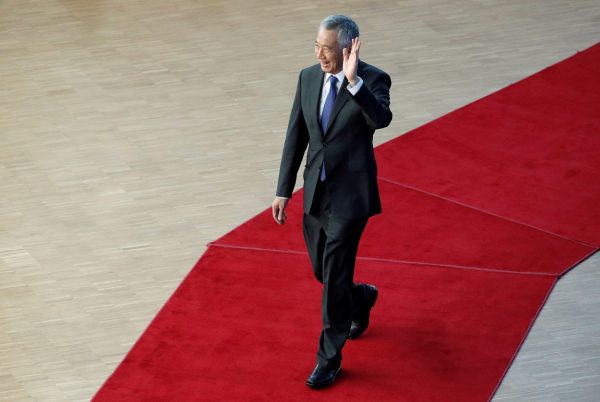There is no formal process of selection and the decisions are made behind closed doors, with narratives about the selection process generated retrospectively. The trigger for the final declaration of Heng Swee Keat as the designated successor was his election to the rather obscure position of First Assistant Secretary-General of the ruling People’s Action Party. This election was initially greeted as an indicator that Heng Swee Keat was merely the front runner to be next prime minister but in the space of a day it morphed into a declaration of succession.
Heng Swee Keat was already known to be Lee Hsien Loong’s favourite even before 2016. When Heng Swee Keat suffered a stroke during a Cabinet meeting in May 2016 and spent six days in a coma, it was universally accepted as being a blow to Lee Hsien Loong’s succession plans. Only extreme medical intervention saved Heng Swee Keat’s career and brought him back into contention. Since then, the process of selecting the next prime minister has suffered unexplained delays. Now we know why the delay was necessary: to give Heng Swee Keat a chance to settle doubts about his health, while the other candidates were dropped.
Heng Swee Keat was never an obvious candidate. He has a relatively narrow range of Cabinet and professional experience and is a rather awkward public speaker. No one doubts his technocratic competence, nor that he will be ‘a safe pair of hands’ but few, if any, suggest that he has strong political skills. So why did Lee Hsien Loong endorse Heng Swee Keat ahead of younger, stronger and healthier candidates with better political instincts?
The question is easier to answer if we begin by asking who will be the next prime minister after Heng Swee Keat. Lee Hsien Loong’s son, Li Hongyi, is currently a senior civil servant working in one of the divisions of the Prime Ministers’ Office and has been identified by his close relatives as harbouring political ambitions. Li Hongyi denies that he wants to follow in his father’s and grandfather’s footsteps but he and his mother have been carefully cultivating his media and social media profiles as one would for an aspiring politician. Rumours are now circulating that he will enter parliament at the next General Election in 2020.
Lee Hsien Loong is 66 and indicated he would like to step down by age 70, which would make Heng Swee Keat about 61 when he becomes prime minister. If his health holds up, Heng Swee Keat can expect to enjoy a decade or perhaps longer as prime minister, by which time Li Hongyi would be 45 to 50 — an acceptable age for a prime ministerial aspirant.
Granted that any of the six original candidates would have met the basic threshold of political and administrative competence, the attraction of Heng Swee Keat is his age, health record and ordinary communication skills. In short, he is not likely to disturb a succession plan by overstaying his welcome — as did former prime minister Goh Chok Tong, who was supposed to be a stop gap between Lee Kuan Yew and Lee Hsien Loong but persisted in the job for 14 years.
The main risk of the Heng Swee Keat succession is that it leaves the government with a prime minister who has no record of being an effective politician (as opposed to an effective administrator) at a time when a number of political red flags have surfaced.
The most serious institutional issue is the government’s recent declaration that Housing and Development Board flats will have nil value at the end of their 99 year leases and at that point will revert to the government without compensation. This is a particularly uncomfortable issue because about 80 per cent of Singaporeans ‘own’ their flats and regard them as their main financial asset. The government has also spent decades talking up their values. Now it turns out that devaluing flats is part of its plan.
The government is not going to lose the next election but it does not like to leave anything to chance. In the absence of good political instincts and a mediocre record of administrative achievements, the Cabinet has upscaled the intensity of its repressive actions throughout 2018, continuing a trajectory that has been developing for several years.
This may be satisfactory as a short-term measure to retain control but it is not a great way to launch a new round of change in government, nor to lay the groundwork for the following generation.
Michael D. Barr is Associate Professor of International Relations at Flinders University and a Fellow of the Australian Academy of the Humanities.
This article is part of an EAF special feature series on 2018 in review and the year ahead.

